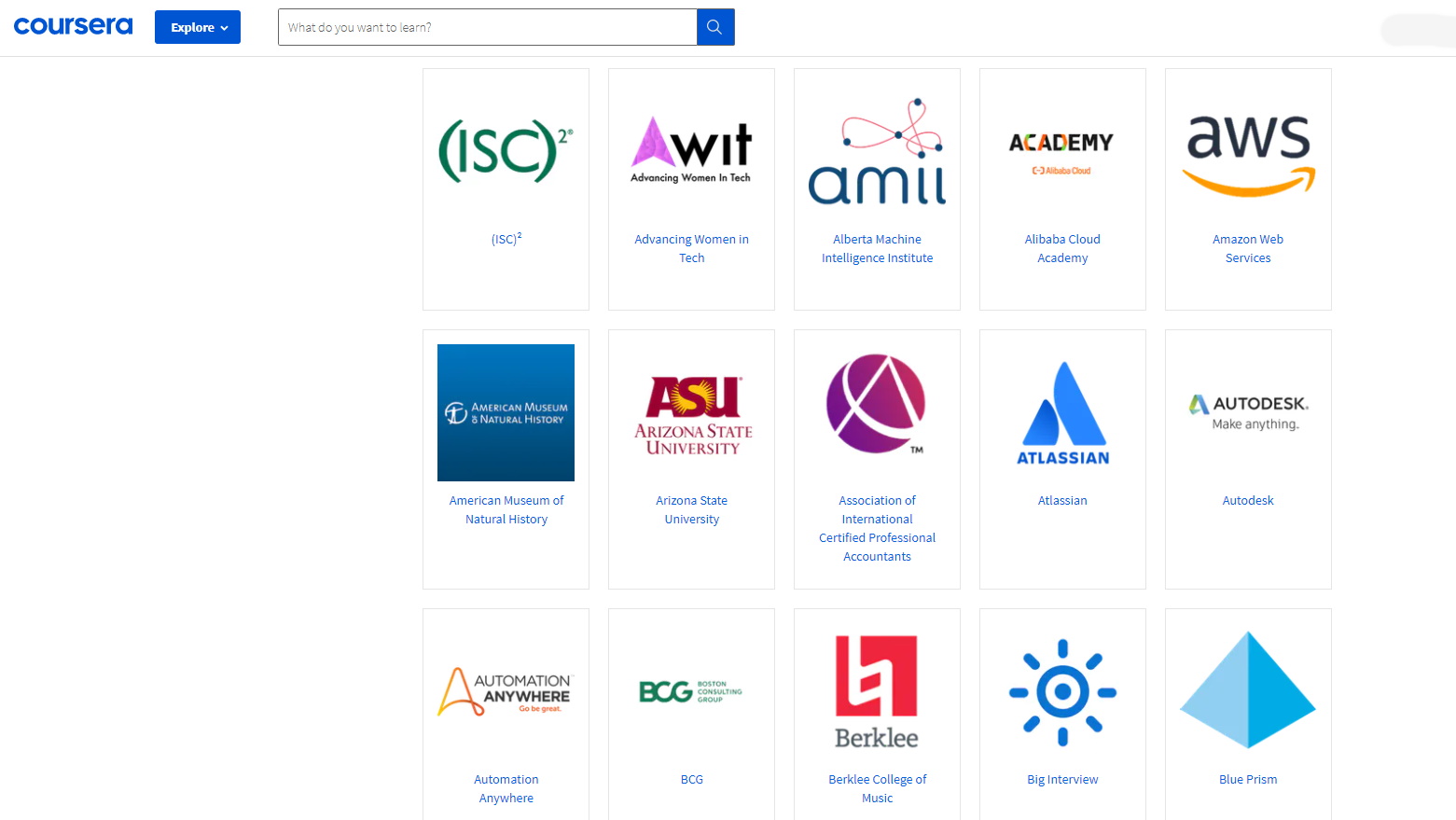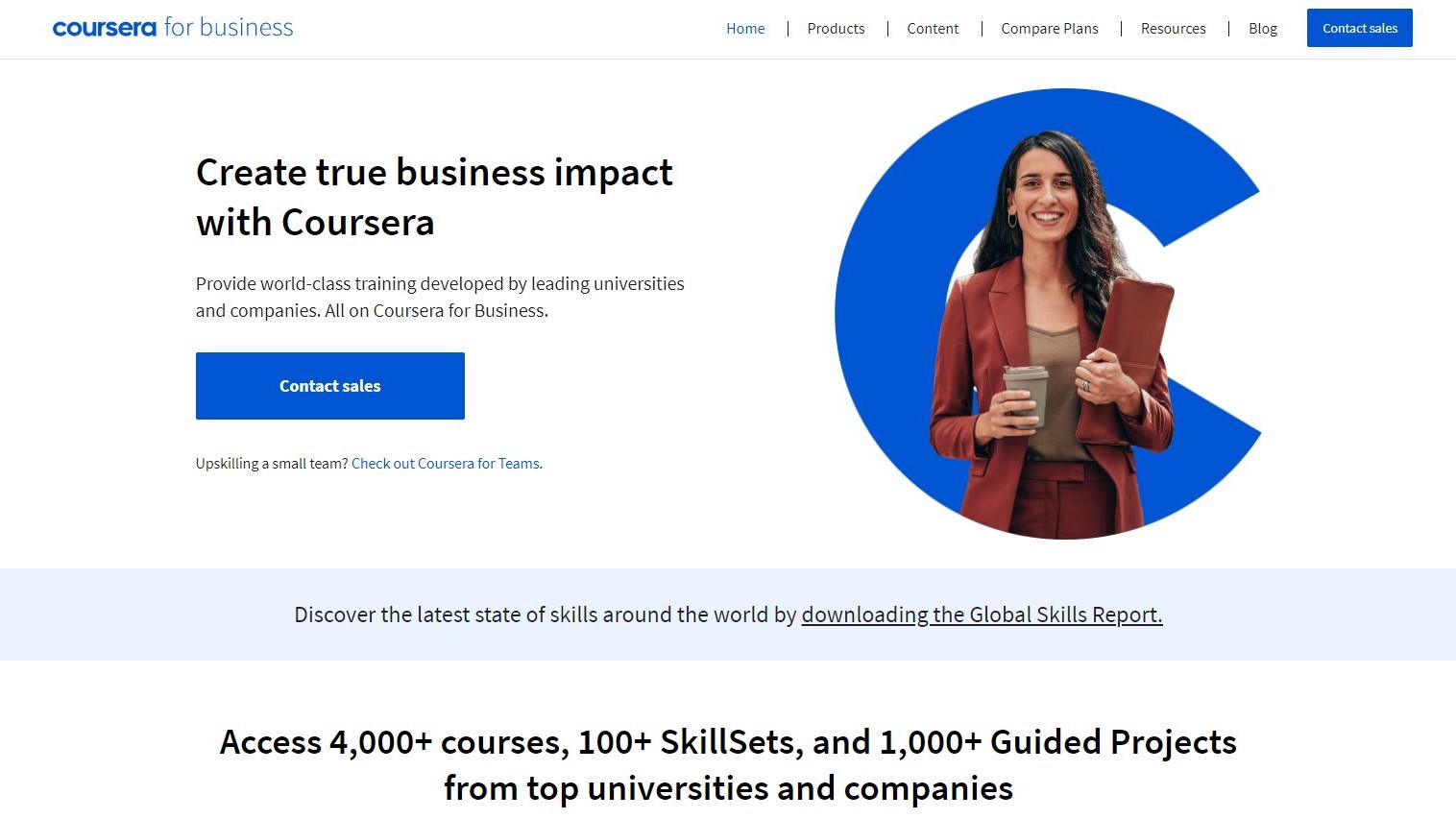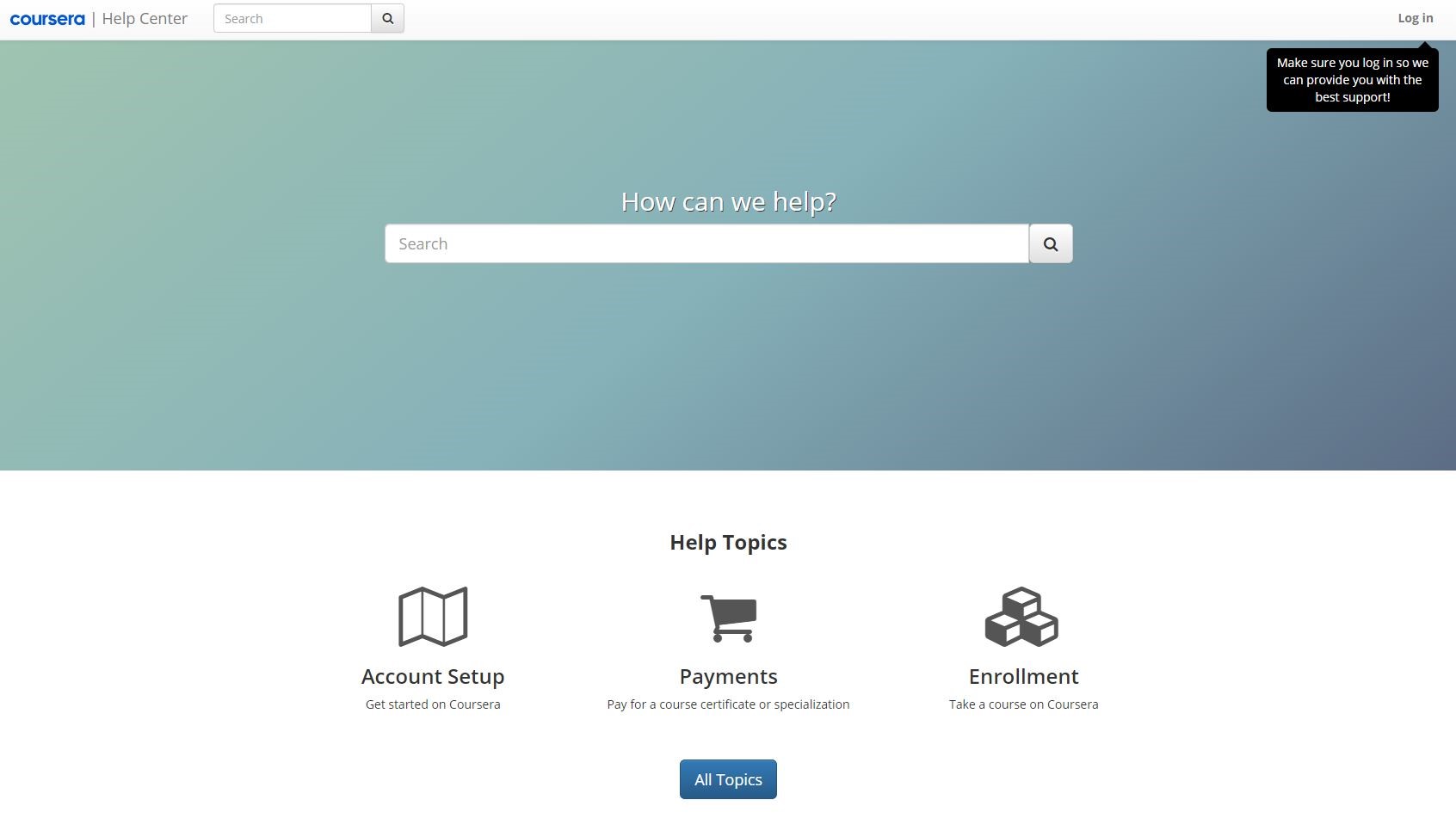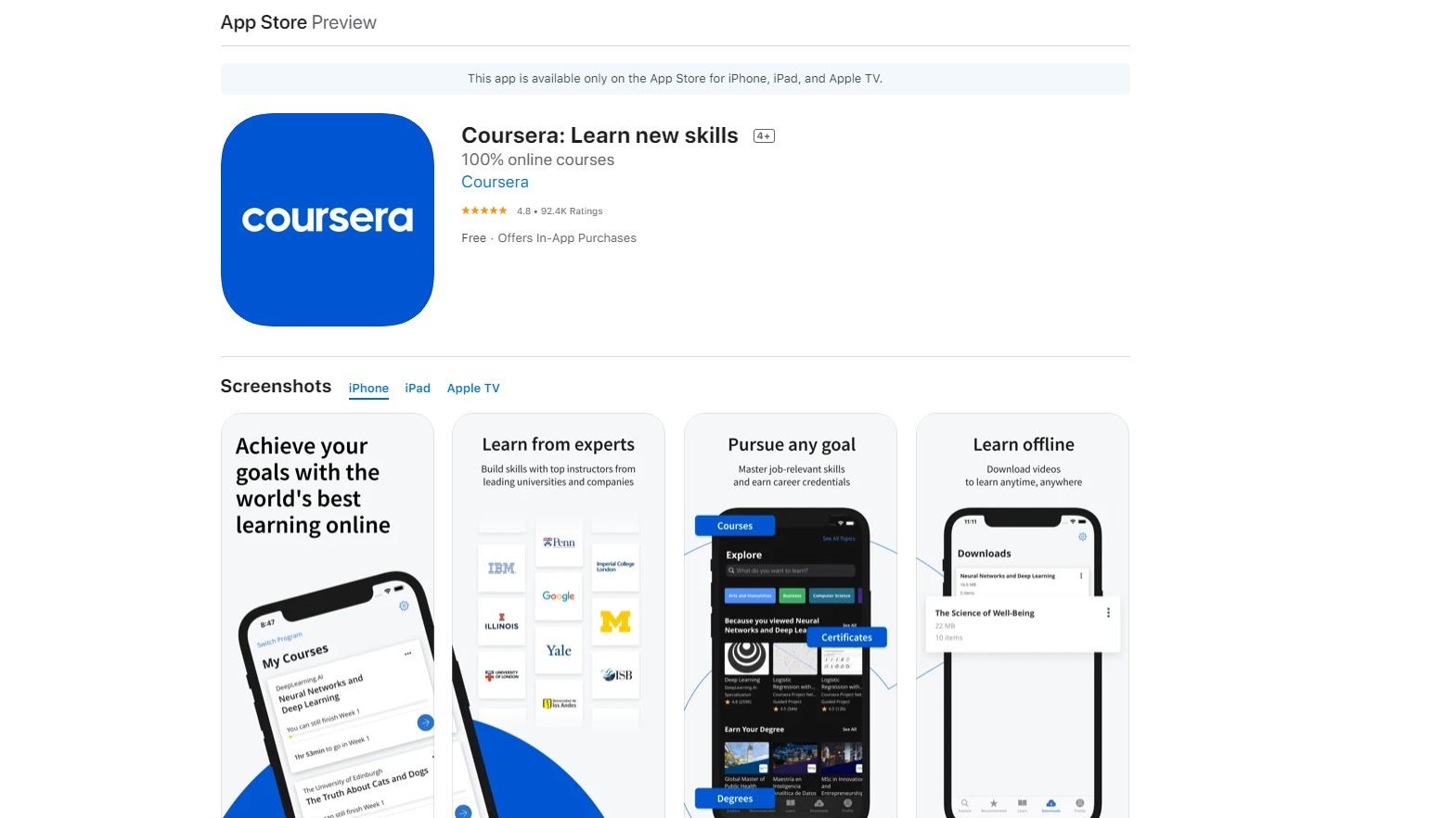Coursera
Back in 2012, Coursera was founded by Stanford Computer Science professors Daphne Koller and Andrew Ng. Since then, growth has been strong, with use at more than 6,000 locations, by over 82 million students, and over a hundred Fortune 500 companies.
- Interested in Coursera? Check out the website here
In February 2021, Coursera was granted B Corp certification, which gives it a legal obligation to not only shareholders, but also to provide a benefit to society. Coursera has partnered with leading corporations including Google and IBM, and universities such as Duke University and Imperial College of London.
- Also check out our roundup of the best online courses
Features
At its heart, Coursera is an online learning platform with streaming video lectures. This platform focuses on college type of courses, whether for credit at a university, with alternatives such as free learning, and also some certificate programs.

Like some other university based online learning platforms, the content is more focused. Learners that want more casual content, such as a film appreciation class, or basic cooking won’t find it at Coursera. Rather, the offerings are tilted towards business, and computers when perusing the course catalog. Examples to support this are Cybersecurity Certifications, such as the Cyber Incident Response Course from Infosec, or an online Master’s Degree in Data Science offered by multiple schools, including the University of Illinois, and the University of Michigan.
That said, there are a smattering of offerings under the Arts and Humanities department. This includes a course in “Creative Writing” from Wesleyan University, “Graphic Design” from the California Institute of the Arts, and “Modern and Contemporary Art and Design” from the Museum of Modern Art.
There are also offerings for a Guided Project. This is a more in depth and interactive experience than in a course. Here, via the web browser, a project is done in The Cloud, with an instructor guiding the learner step by step via a split screen. An example of this is “Agent-based Generative Art” by NetLogo.

Plans and pricing
Coursera uses a tiered method of plans. The starting point are the Free Courses, and it came up that there are 1,790 videos to access. Some are quite popular, such as “Machine Learning” that is offered by Stanford University. Each gets designated as a beginner course, or for the more advanced, and a numerical ranking out of five stars to seek out the highest ranked content.
Next up are the professional certificates. These are designed to teach a skill in about six months for those that either don’t wish to pursue a formal degree, or that want to update their skills. Examples are offered by some leaders in the industry, such as Facebook’s “Social Media Marketing,” IBM’s “Data Marketing,” and Intuit’s Bookkeeping. There is a cost for these professional certificates, and include a certificate for your LinkedIn page, but unfortunately the costs are not indicated on the website.
Then there are professional degrees, just like at any major university. These are 100% online degrees, such as the Online MBA offered by the Gies College of Business at the University of Illinois Urbana-Champaign. This one takes 2 to 3 years to complete the 72 credit hours, consisting of 18 courses and 3 capstone projects. While the $22,104 price is high compared to other online content, it is quite reasonable compared to physically attending a university where a masters can easily push over $100k at a private university.
Finally, those looking for a monthly subscription for unlimited content should check out Coursera Plus. This allows access to over 3,000 courses, including “Job-ready certificate programs,” for an all inclusive fee of $59 monthly, with a 7-day trial period.

Support
Help gets offered through Coursera’s ‘Learner Help Center,’ which consists of two functions. The first is a search bar to ask a question. The second is essentially a FAQ with predone articles that cover topics such as “Enrollment options,” and “Troubleshooting login and account issues.” Elsewhere, there is also a Coursera Community for learners to interact with fellow students in a sort of virtual quad, but this was currently being transitioned to a new platform, which may explain the lack of interaction when we looked.
While these options cover the basics, there are some key missing contact possibilities. This includes a phone number, a fax number, a direct email, and a chat box. As Coursera indicates “Learning without limits,” we find the missing options too limiting for our preference.

User reviews
Coursera has apps for both the Android and iPhone smartphone platforms. On the iOS side of things, the app scores a solid 4.8/5 stars with over 92k ratings. While the reviews are overall favorable, the Coursera app does get called out for difficulties with cancelling a class, not syncing with the desktop platform, and issues with quiz sessions.
On the Android side, with an even higher 126k ratings, the score is a lower 4.2/5 stars. While once again the reviews are generally positive, users still had some issues with entering text via their smartphone, use of the app on an Android tablet, and difficulty with accessing the next course in the sequence after the previous one is completed.
Final verdict
Coursera has a solid library of online educational opportunities, especially in the business and computer science area. We appreciate the range of offerings from free to graduate degrees, the available smartphone apps, and the partnerships with leading institutions and corporations. We would like to see less buggy apps, more offerings for casual content, and a larger number of support options. For those looking for online learning that is equivalent to a college or university, Coursera is an excellent option.
- We've also featured the best online learning platforms
0 comments:
Post a Comment